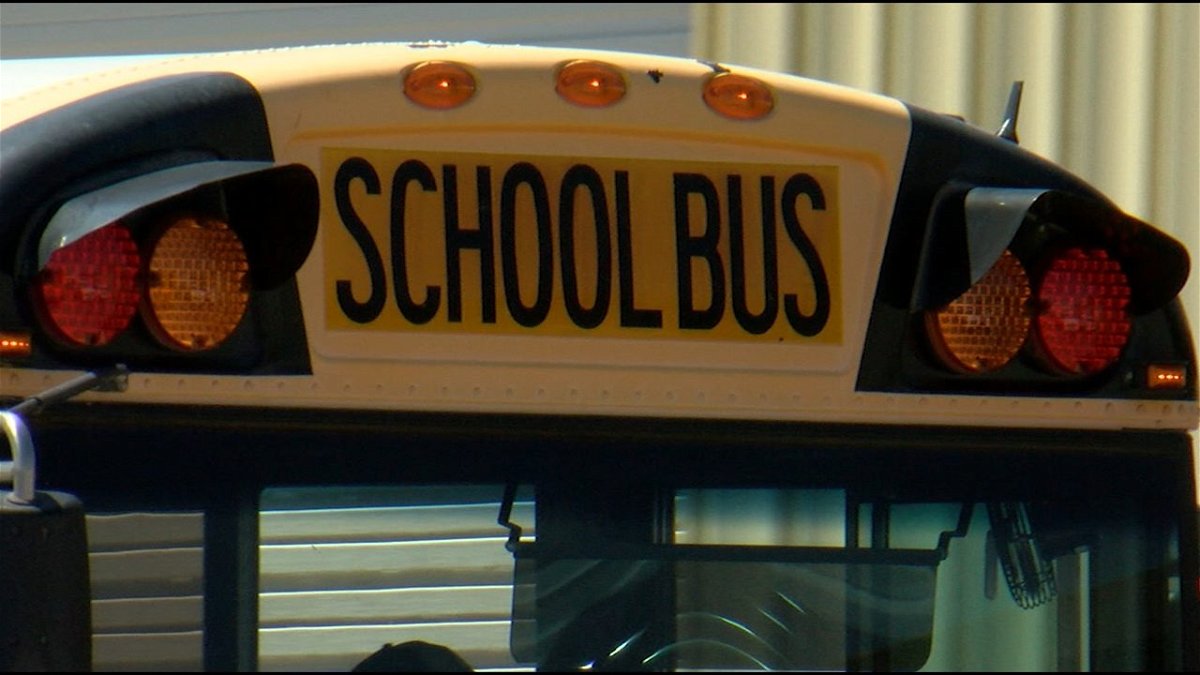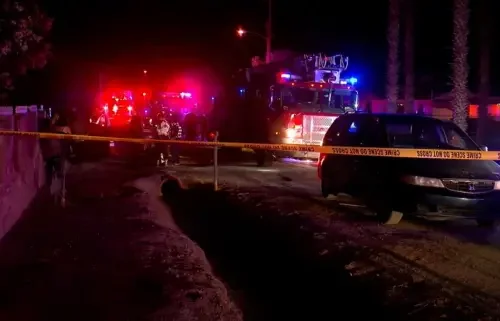New Mexico extends school closures through the rest of the academic year due to virus

SANTA FE, New Mexico — Public school students in New Mexico will not return to classrooms or athletic fields during the current academic year due to the coronavirus, the state's top education official announced Friday.
Public Education Secretary Ryan Stewart called the decision to extend a classroom shutdown painful. He explained that students are likely to be graded for remote coursework on a pass-fail basis. High school seniors will be able to graduate through a “demonstration of competency” that may includes a series of assignments, and tests including a college entrance exam — New Mexico's student assessment tool for high school students. (You can watch the Public Education Department's web conference with the media in the video player at the bottom of this article.)
Appearing alongside state Cabinet secretaries for Indian affairs and childhood wellbeing, Stewart stressed that school health centers and counseling services will continue to be available with safety precautions, as the state distributes lunches and breakfasts to more than 100,000 children.
“This is not something that we would wish on anybody,” Stewart said. “We are going to stand by our kids even when we are at a social distance.”
He said that rites of spring such as proms and graduation ceremonies should take place, even if they are delayed by several months. Athletics won't resume before fall.
The state is supporting a “continuous learning” program with between one hour of instructional time a day for first graders and up to three hours in grades 6-12, as it distributes academic toolkits to families.
The transition to remote teaching presents daunting challenges in a state that lags behind much of the nation in terms of access to computers and functional internet connections.
The state already has received a waiver from the federal government to suspend requirements for some student academic assessments and minimum annual instructional hours. Advanced placement tests will be shortened to include coursework performed through March.
Obligations toward special education students have not been modified, even as officials acknowledge that remote, online programs may not be feasible for some students. There are no layoffs of furloughs planned for public school staff.
The PED's learn-at-home plan provided to reporters on Friday included these provisions:
SPECIAL NEEDS
Students with special needs will receive all feasible supports and accommodations that can be delivered while maintaining safe social-distancing. School districts must continue to support the transition of children from early intervention into preschool special education. Schools offering behavioral health services will remain open for that purpose.
HIGH SCHOOL SENIORS
Individual districts will design measures by which seniors can demonstrate eligibility for graduation. Those measures could include testing, completing a series of assignments, achieving a set score on a college entrance exam or demonstrating applied work experience. Schools will be required to identify and support students in danger of not being able to graduate.
High school seniors will have until June 19 to demonstrate eligibility, and those who fail to do so will be offered credit recovery in the summer; they can also appeal to their local school board or to the secretary. No student will be denied graduation for lack of access to demonstrate competency.
Actual graduation ceremonies will be postponed or held virtually, depending on the prevailing public health order at the time.
Many high school seniors will have completed a college entrance exam already; additionally, many higher education institutions are expected to waive that requirement, and both the ACT and College Board are considering offering those exams in the summer.
ADVANCED PLACEMENT
Advanced placement exams will be offered online and will be limited to material students should have covered up to March. Accommodations will be made for those students who need access to technology to take the tests.
SCHOOL PERSONNEL
School personnel and contractors will remain on call and continue being paid as usual. Districts have already received guidance on activities employees can continue performing during the closure. Bus contractors are encouraged to continue operating bus routes to deliver food and hard-copy lessons. Special education and other service contractors are encouraged to provide virtual services, collaborate with general education teachers and maintain documentation.
SCHOOL NUTRITION PROGRAMS
Every New Mexico school district has a plan to continue providing childhood nutrition during this period.
The Public Education Department is also seeking permission to distribute Electronic Benefits Transfer cards that would allow qualifying families to purchase meals with their free breakfast/lunch allotment.
CHILD ABUSE AND NEGLECT
With schools closed, some children may be more vulnerable to abuse and neglect in their homes. In addition, teachers, school administrators and other school staff are often the first to notice changes in behavior and appearance that may indicate abuse or neglect. New Mexicans must fill this void and be extra aware of the safety and well-being of children they know and those in their neighborhoods. Any citizen can report suspected child abuse or neglect by dialing #SAFE from their cell phone or by calling 1-855-333-SAFE from a landline.
SUPPORTING FAMILIES
The Behavioral Health Division of the New Mexico Children, Youth and Families Department is working with the New Mexico Human Services Department and managed care organizations to help providers and families create digital access to mental health services for children and youth.
COLLABORATING WITH NATIONS, TRIBES AND PUEBLOS
Tribes, pueblos and nations are located in some of the most rural parts of New Mexico and often experience extreme health care provider shortages. The governor and state agencies are collaborating with tribal leaders to support their needs in these times.
These state agencies will continue working with the tribes, the U.S. Department of Agriculture and the Bureau of Indian Education to support students who attend BIE and tribally run schools: Indian Affairs Department, Public Education Department, Children, Youth and Families Department and Early Childhood Education and Care Department.

